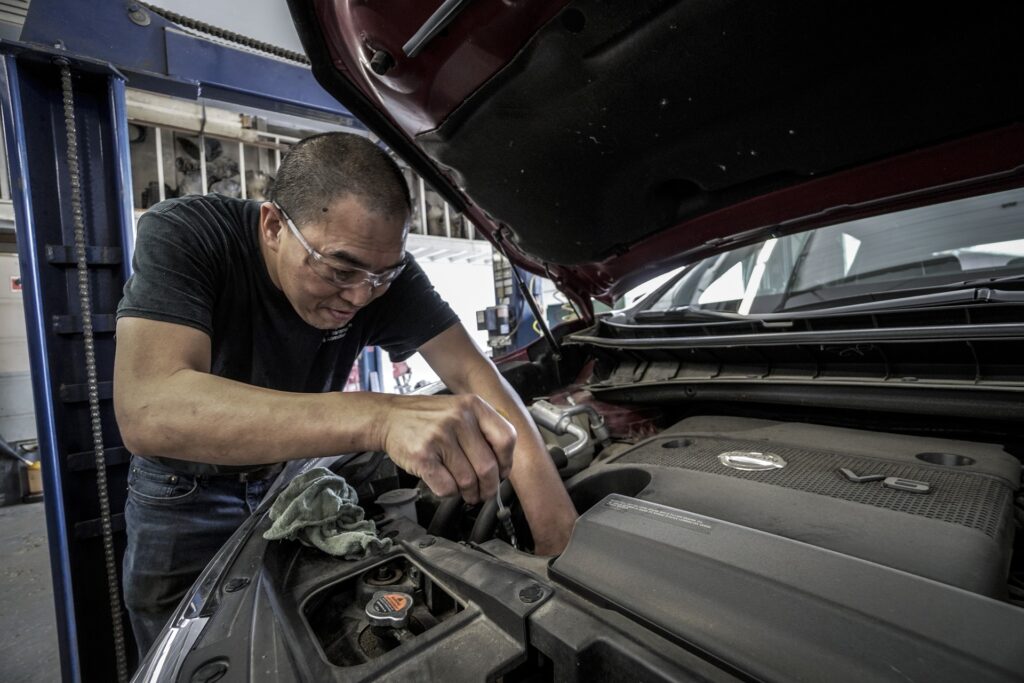Dallas County Reports 656 New Positive COVID-19 Cases
As professionals encourage the public to be more cautious in light of the continued rise in COVID-19 cases, the National Highway Traffic Safety Administration is reminding everyone to use the time change to remember to check for vehicle recalls. Here’s what you need to know today:
- Dallas County reports 656 new positive COVID-19 cases including 91 probable cases;
- Governor Greg Abbott appoints four to State Independent Living Council;
- NHTSA consumer alert: set your clocks back, check for safety recalls.
Dallas County Reports 656 New Positive COVID-19 Cases Including 91 Probable Cases
Dallas County health officials reported 656 additional positive cases of COVID-19 in Dallas County Thursday, for a cumulative total of 95,402 confirmed cases, including 1,108 confirmed deaths.
There were 91 additional probable cases reported, for a total of 5,649 probable cases including 14 probable deaths. Of the 565 new confirmed cases, 274 came through the Texas Department of State Health Services’ electronic laboratory reporting system, and all are from October.
The additional four deaths being reported today include a Cedar Hill man in his 40s, a Grand Prairie man in his 50s, and two Dallas men in their 80s. Unless otherwise noted, they had underlying health conditions.

The provisional seven-day average of daily new confirmed and probable cases (by date of test collection) for CDC week 42 was 588 — the highest daily average of new cases since July. The percentage of respiratory specimens testing positive for SARS-CoV-2 has increased to 14.2% of symptomatic patients presenting to area hospitals testing positive in week 42 (week ending Oct. 17).
A provisional total of 493 confirmed and probable COVID-19 cases were diagnosed in school-aged children (5 to 17 years) during CDC week 42 – about twice the numbers of children diagnosed in this age group 3 weeks earlier (CDC week ending Sept. 26).
Of all confirmed cases requiring hospitalization to date, more than two-thirds have been under 65 years of age. Diabetes has been an underlying high-risk health condition reported in about a third of all hospitalized patients with COVID-19. Of the total confirmed deaths reported to date, about 24% have been associated with long-term care facilities. New cases are being reported as a daily aggregate, with a more detailed summary report updated Tuesdays and Fridays.
Local health experts use hospitalizations, ICU admissions, and ER visits as three of the key indicators as part of determining the COVID-19 Risk Level (color-coded risk) and corresponding guidelines for activities during our COVID-19 response. There were 453 COVID-19 patients in acute care in Dallas County for the period ending on Wednesday. The number of emergency room visits for COVID-19 like symptoms in Dallas County was 440, which represents around 20% of all emergency department visits in the county according to information reported to the North Central Texas Trauma Regional Advisory Council.
If increases over the summer indication, hospitalizations can rise rapidly and take months to decline. Local hospitals also have patients that have been hospitalized for extended periods due to complications from COVID. These patients are not reflected in current numbers but illustrate the expansive impact of this pandemic on local hospital systems and health care workers. You can find additional information on risk-level monitoring data here.



“Our number of new COVID-19 cases continues its trend upward and hospitals and medical modelers are telling us that if we don’t change our behavior, we will have numbers exceeding 1,000 cases per day going into Thanksgiving,” said Dallas County Judge Clay Jenkins. “It’s important that we find fun things to do this Halloween that don’t include trick-or-treating or Halloween dances or parties. Consider family activities like pumpkin carving, candy hunts, movie nights, crafting and other activities to make this a meaningful and memorable holiday without increasing the spread of COVID.
“We all know what we need to do, we just need to do it so that we can change the trajectory of where we are going to be this winter without an increase in compliance with masking, social distancing, and avoiding crowds.”
Governor Greg Abbott Appoints Four To State Independent Living Council
Gov. Greg Abbott has appointed Melva Henderson, Debra Medellin, and Bonnie Notargiacomo and reappointed April Pollreisz to the State Independent Living Council for terms set to expire on October 24, 2023. The council develops the State Plan for Independent Living and serves as a resource to state and local organizations on Independent Living and related issues for persons with disabilities.
Henderson of Dallas is a prospect research associate at Envision Dallas. Henderson received a bachelor’s degree in social work from Texas Woman’s University and a master’s degree from Texas A&M University-Commerce.
NHTSA Consumer Alert: Set Your Clocks Back, Check for Safety Recalls
As we set our clocks back an hour this weekend, it’s a good time to check for any open safety recalls on your vehicle. Just as changing your smoke detector batteries protects you and your family, so does checking for and repairing safety recalls.
Recall repairs are free at your automaker’s local dealership. If you have an open recall, the National Highway Traffic Safety Administration urges you to call your dealership immediately to schedule your free repair.
Despite recall notices and public warnings, some vehicle and vehicle equipment recalls are never repaired.
In 2019, there were 966 safety recalls affecting more than 53 million vehicles and items of motor vehicle equipment in the United States. Several large, high-profile recalls of vehicles and equipment highlight the importance of repairing a recall immediately:
- Tens of millions of Takata air bags, the largest recall in U.S. history,
- More than 1.7 million Harbor Freight jack stands, which could collapse and injure people around or underneath a vehicle, and
- More than 2.1 million Denso fuel pumps, which could fail and result in a stall that causes a crash.

While not all recalls are high profile, all recalls are important. Don’t risk your safety, that of your loved ones, or others on the road by failing to address any open vehicle or equipment recall. Protect yourself and your family.
How to Check for Recalls
- Use NHTSA’s Recalls Lookup Tool to check your Vehicle Identification Number (VIN) for any open recalls, including Takata recalls.
- Download our SaferCar app and let it check automatically for you.
- If your vehicle does have a recall, call your automaker’s local dealer to schedule the free repair.
- Sign up at NHTSA.gov/Alerts to be notified by email if your vehicle is affected by a future recall.
If you think your vehicle may have a safety defect that isn’t part of a current recall, contact NHTSA. Contact NHTSA online or by calling the agency’s Vehicle Safety Hotline at 888-327-4236, Monday through Friday, 8 a.m. to 8 p.m. ET.
Keep yourself, your family, and your neighbors safe by checking for vehicle safety recalls and getting any open recalls fixed for free. For more information, visit NHTSA.gov/Recalls.









